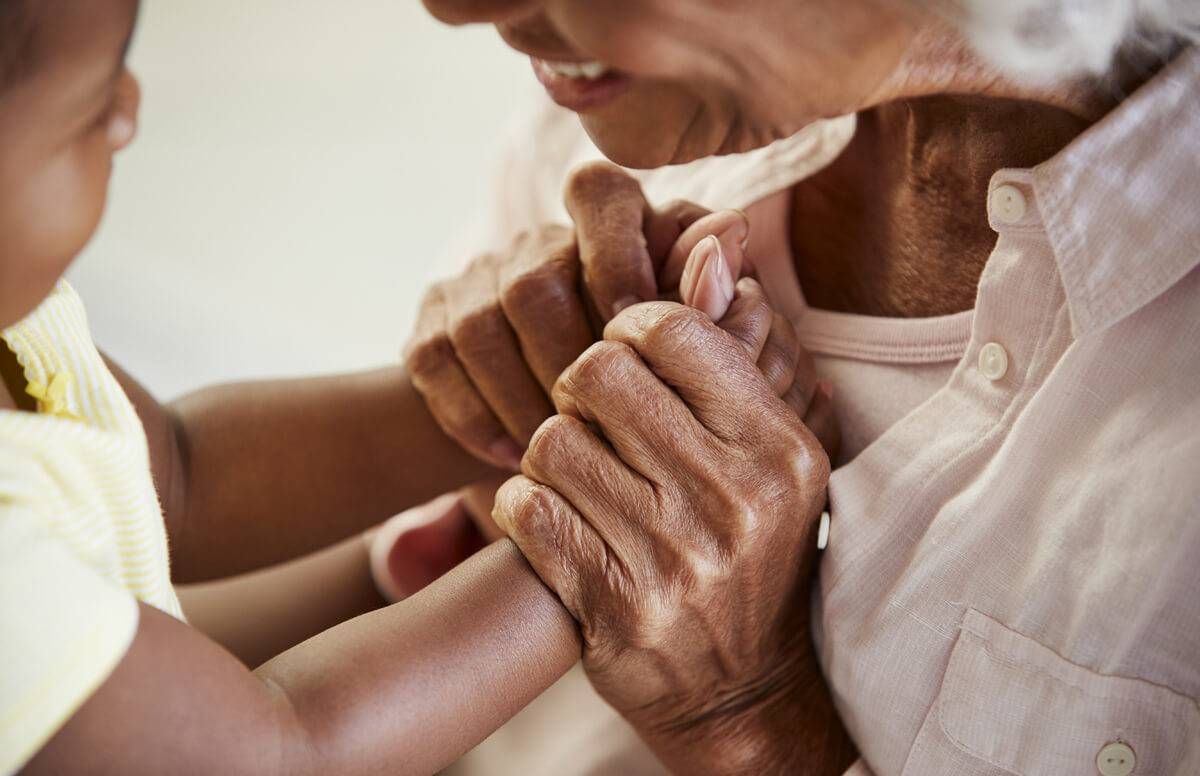Get a Grip on Hand Care
Tips to make your aging hands and fingers look their best
As we age, many changes affect our hands. Illnesses, chemical sensitivities, sun exposure and other factors can affect the look and dexterity of our hands and fingers.

"While some problems with aging hands and fingers are not avoidable due to genetic predispositions, most of the factors leading to aged hands and fingers are very preventable," says Dr. Wendy Kar Yee Ng, a board-certified plastic and hand surgeon in Orange County, Calif. "I have looked after patients who take great care of the skin on their face ... However, sometimes these patients don't realize that their hands can give away their age."
We'll point the finger at some problems and offer tips on what you can do to care for aging hands and fingers.
Please Hold

The human hand is delicate, yet remarkably strong. Arthritis can cause the cartilage between the bones to wear away, allowing bones to rub together. That can bring on inflammation, pain or joint deformity. The last joints in the fingers and the thumb, or basal joint, are the most commonly affected by arthritis.
What you can do: Ask your medical professional about using a hand splint or glove to help reduce pain from arthritis. Some osteoarthritis patients have reported that soaking hands and fingers in warm water and Epson salts help with pain. Avoid any unnecessary gripping tasks. Alternative treatments include Tai Chi (special programs that focus on arthritis are available), acupuncture or Mindfulness-Based Stress Reduction (MSBR).
The Nerve!
Carpal tunnel syndrome can be triggered by arthritis, diabetes, thyroid imbalance, lupus and other chronic inflammatory diseases. Medical conditions such as atherosclerosis (the narrowing of the arteries or other vessels in the body including the hands) or diabetes can also play into hand health.
"As we get older, our muscles must continue to perform exercises in order to prevent atrophy."
This can lead to peripheral neuropathy (problems with the function of nerves in the fingers), and cause symptoms such as poor tolerance of temperature changes in the fingers, burn injuries from lack of sensation (if you don't know a pot is hot when you pick it up), wound healing problems or scabbing.
What you can do: Talk to your doctor as soon as possible if you experience symptoms of carpal tunnel syndrome or peripheral neuropathy. Some treatments, when used in the early stages of carpal tunnel syndrome, could possibly eliminate the problem.
Rest your hands and fingers more often, avoid strenuous activities that put stress on the wrist and apply cold compresses to help with swelling. Avoid sports that require repetitive hand and wrist motion, and add a hand exercise regimen to your day. Peripheral neuropathy can also stem from Vitamin B-12 deficiency, so make sure your diet includes foods rich in Vitamin B-12 such as fish, meat, poultry, eggs and milk.
Muscling In
Age-related muscle loss, or sarcopenia, affects many older adults, and the loss of muscle in the hands and fingers could affect fine motor function and gripping strength.
"As we get older, our muscles must continue to perform exercises in order to prevent atrophy," says Ng. "Atrophied muscles can lead to weakness and balance problems, as well as difficulty with fine movements of the hands and fingers, including opening doors and jars or turning keys."
What you can do: Regular hand and finger exercises can improve muscle function. Studies have shown that having professional hand massages and self-massage could reduce pain associated with many of these age-related conditions. Acupuncture or acupressure have been used to significantly reduce the pain of carpal tunnel syndrome and improve wrist function.
You've Got Nails
Fingernails can change with age, as well. They can become thicker or thinner as a result of illness, fungal infections or medical treatments. Hormonal imbalances or anemia can cause textural changes. Long-term deprivation of oxygen could cause clubbing (enlargement of the finger end or nail).
Heart problems, diabetes or aging can bring on so-called "Terry's nails," where most of the nail is white except for a band of color at the tip. Repeated hand washing and drying, cleaning products or nail polish removers may make the nails brittle and easily broken.
"Constant hand washing can then be detrimental to skin health and result in an increase in irritation and blistering."
What you can do: If you notice a difference in the thickness, texture or shape of your nails, consult a doctor to rule out underlying conditions. Keep nails trimmed to avoid breakage. Practice good hand washing techniques including the fingers and under the nails and thoroughly dry your hands after washing.
Give Me Some Skin
The level of collagen in our hands decreases as we get older, and our skin is also affected by environmental changes, sunlight and illness. Spotting, thinning or thickening of the skin, cracking and blistering can affect our hands and fingers. UV light exposure leads to signs of aging including dark spots or brown spots and other pigmentation changes, as well as skin cancers and fine lines or wrinkles.
And hand washing is a necessity, becoming one of our best defenses against COVID-19 and other communicable illnesses.

"There is no doubt that hand washing prevents disease. As a matter of fact, hand washing probably has saved more lives around the world from infectious disease than any antibiotic or drug ever marketed," says Dr. Fayne L. Frey, dermatologist and founder of FryFace, in Nyack, N.Y. "Soap and water removes all types of germs from the skin surface, bacteria, fungus, virus, even chemicals and other harmful toxins."
But, says Frey, washing or applying alcohol-based hand sanitizers can dry the hands. Water can also destroy the physical strength of the palmar surface (the palm and grasping side of the hand) and can affect the areas around rings on the fingers.
"Constant hand washing can then be detrimental to skin health and result in an increase in irritation and blistering of the skin. Cracks can develop around cuticles, fingers, thumbs, and knuckles," says Frey.
What you can do: "A straightforward way to correct these changes includes placement of hyaluronic acid fillers to the back of the hands, which can hide the appearance of prominent veins or tendons. This is a relatively quick in-office procedure that can be done with topical or local anesthetic only," says Ng. "Look out for conventional moisturizers that may down-regulate your skin's ability to maintain moisture and stay hydrated. Also, ensure that you wear sunscreen daily – including on your hands."
Frey suggests looking for one single ingredient when it comes to moisturizing our hands and fingers. "Petrolatum is the single best moisturizing ingredient. It is the most effective ingredient at preventing water loss from the skin as it evaporates into the environment."


